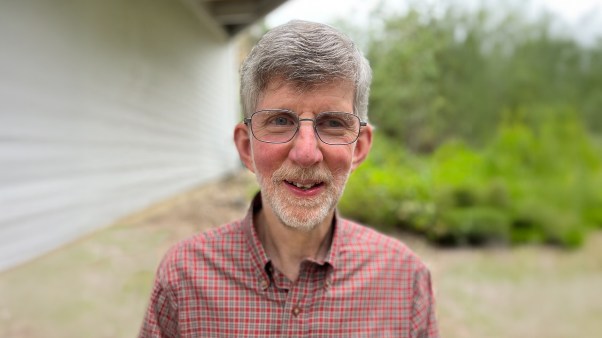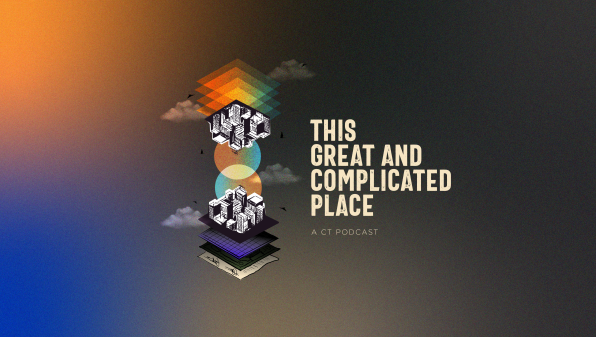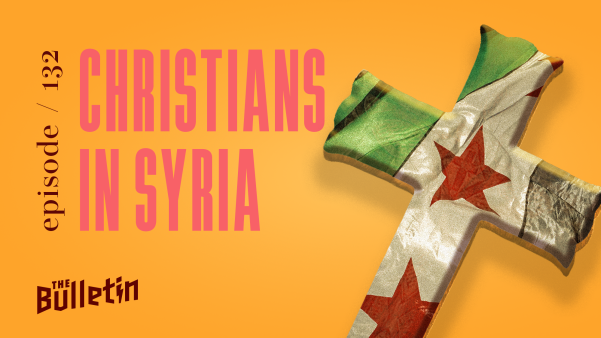On Sunday, millions of southern Sudanese began voting in a referendum for independence as required in the 2005 peace agreement with the Muslim-majority national government in Khartoum.
The high expectation could be seen in the faces of many and the excitement could be felt in the air as women sang and danced around a voting center in Nairobi, Kenya. Old age and sickness did not deter people from casting their ballot. Elizabeth Nyuon, 66, sat in the sun, patiently waiting to vote.
Thirty-year-old Jacob Akol traveled from the coastal city of Mombasa to Nairobi, Kenya, a distance of more than 290 miles, to vote in the South Sudan referendum.
He was at the polling center at Thika Road by the time the station was opening at 8 a.m. on Sunday. His reason for making that long journey: “I don’t want future generations to live under the same terrible conditions that we have lived in!”
Like many other southerners, Akol has a personal experience of how the war in Sudan has affected millions. His father, uncle, and cousin were killed in war by “armed men from the north of country.” He fled his home and has lived in Kenya as a refugee for more than a decade. He says that his mother died of natural causes because of the lack of medical infrastructure in the South.
He had been in the voting queue for more than 8 hours by the time Christianity Today spoke with him in the scorching heat of the day. And like many others who had also traveled from far and wide, he was not going to give up until he cast his ballot, “so that we can have our own country.”
He has high expectations that things will be better with the South becoming a separate state: “Before, we suffered persecution as Christians, but now we are going to be free from imposed Shari’ah law.”
Besides, he sees the birth of a new nation bringing new opportunities, especially for young people. “There will be improvement in education since we will not be forced to use Arabic. Our natural resources will be used to develop our land. We [as southern Sudanese] will no longer be discriminated against in employment.”
Akol said that he would be voting for secession, just like many others CT spoke to at the center. With the prospect of having their own country, Akol now says he is ready to go back home after finishing his studies in Kenya.
Voting Proceeds Slowly
Many people at the center had left their homes in the wee hours of the morning just to be at Nairobi’s polling station by the time it opened. Some came from as far as Nyeri, 110 miles from Nairobi.
Arok Manyok, 26, said that she was shocked to be able to cast her ballot because she had never imagined this day coming to pass. “I don’t have brothers and sisters because [they died in] the war. I am glad that that experience is coming to an end today,” she said, holding a banner with the Sudanese flag on it.
Observers included the Sudan Council of Churches, the Interim Independent Electoral Commission of Kenya, and All Africa Council of Churches.
One election observer, Tobiko Naisiaa, said that the process started on time and was peaceful, but he was upset that it was so slow.
The center’s manager, the Rev. John Chol Daau, agreed with this problem, saying that officials took a lot of time to help illiterate voters and some blind voters.
At one point, there was almost a stampede when people in the line became impatient and started pushing through the small gate leading into the center. The Kenyan security forces closed the gates and restored order. The same thing happened in another polling center, at the Railways Club in Central Nairobi.
The South Sudan Referendum Commissioner in charge of Kenya, Phillip Deng, told CT that everything was running smoothly in the six centers in Kenya. He added that the results of the referendum will only be known after the voting is over on January 15. Then the counting will begin.
Voting in America
South Sudanese people living in America also found places to vote, with polling locations in eight major cities.
Durmomo Gary, who pastors a start-up Sudanese congregation that worships at the Evangelical Free Church in Wheaton, Illinois, found the Chicago polling location packed on Sunday morning with voters who live in a number of surrounding states.
That afternoon, Gary led a prayer service for the referendum with about 30 people in attendance. (Watch a video of the prayer service.)
“It’s too early to rejoice,” he warned, reminding the congregation that an independent southern Sudan would still face a host of challenges, such as clean water, infrastructure, health care, tribalism, and possible border disputes with the North. Toward the end of the service, Gary led the assembly in prayer for healing from bitterness after more than half a century of strife.
“We know what happened to us, and we know what is still happening to us, but we need to release ourselves from bitterness, anger, hatred,” said Gary, a refugee himself. “It’s not easy to forgive someone whom you have seen kill a family member.”
It’s clear to Gary and others that the South and the North cannot live together as family. “If we become neighbors,” Gary said, “We should be good neighbors.”
Voting in Sudan
Among the first to cast their ballot Sunday was southern Sudan’s leader, Salva Kiir, who voted at a center near the grave of late president John Garang.
Garang, the charismatic former rebel leader who fought for the South’s independence, was killed in an air crash shortly after signing the 2005 peace agreement, which included the requirement for an independence referendum in 2011.
Kiir first paid respects to Garang before casting his vote.
As he emerged from the center, amid crowds of women ululating in excitement over the vote, he said, “This is the historic moment the people of South Sudan have been waiting for.”
Wire reports from earlier today indicate that about 36 people died in violence involving Arab nomads and southern Sudanese people in Abyei, an oil-rich area along a disputed section of the North-South border.
Before the vote, President Barack Obama said Sudan’s voters must vote free from coercion or intimidation. “Under no circumstance should any side use proxy forces in an effort to gain an advantage while we wait for the final results,” Obama wrote in a New York Times op-ed. He added that if Khartoum lived up to its obligations under the 2005 peace agreement, it could be removed from the U.S. list of state sponsors of terrorism.
The final results are expected February 6 or 14. Appeals of the vote count will be resolved before the results are final. If independence is chosen, the South would become Africa’s newest nation on July 9, 2011.
Moses Wasamu is an editor based in Nairobi, Kenya; Dale Gavlak is a journalist in Amman, Jordan; Trevor Persaud is CT editorial resident.
Copyright © 2011 Christianity Today. Click for reprint information.
Related Elsewhere:
Watch a video of a prayer service in Wheaton, Illinois.
See Tony Carnes’s article on reconciliation, David Neff’s column about praying for Sudan, Moses Wasamu’s article about constructing peace in Sudan, and Sarah Pulliam Bailey’s article on how the vote will test President Obama’s approach.
Christianity Today has a special section on Sudan.
Previous CT articles on Sudan include:
Swoope-ing in to Sudan for Orphans’ Sake | Profits from rapper’s single will help build an orphanage in war-torn country. (December 11, 2010)
Pray for the Peace of Sudan | The World Evangelical Alliance’s Geoff Tunnicliffe talks about efforts to ensure a fair and peaceful election in Sudan and calls for a world day of prayer for the safety of believers there. (November 22, 2010)
Suffering in Sudan | Church leaders ask for prayer and advocacy at Cape Town 2010. (October 23, 2010)
Election Jitters | Sudanese Christians hope nation will hold together until 2011 referendum. (April 6, 2010)







